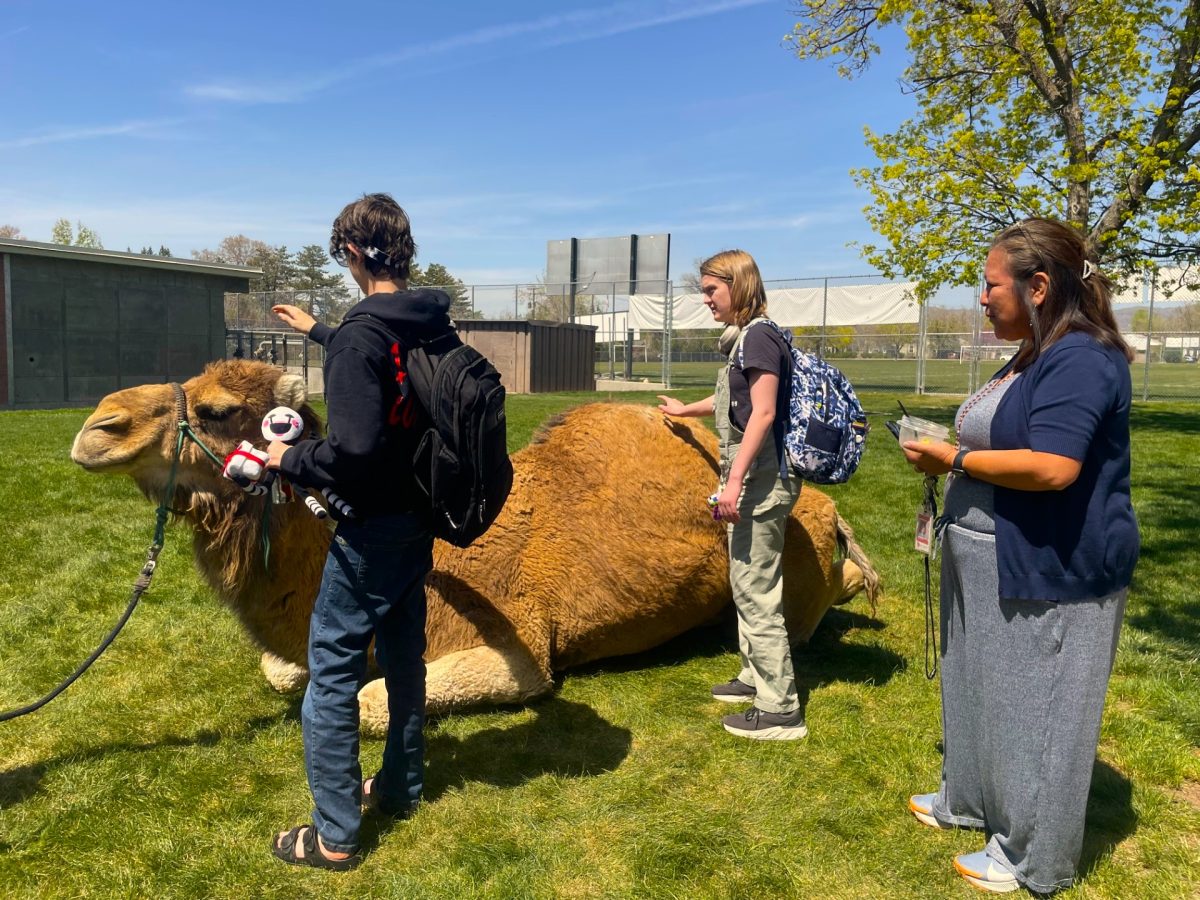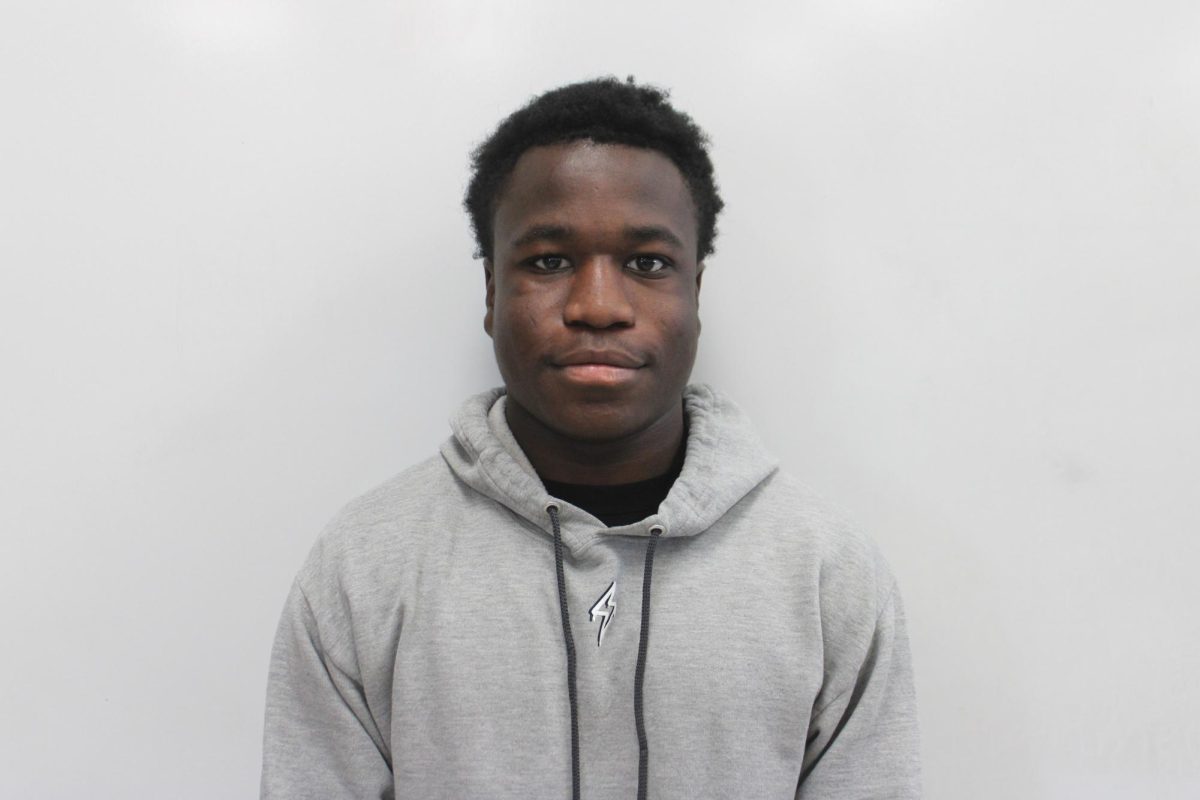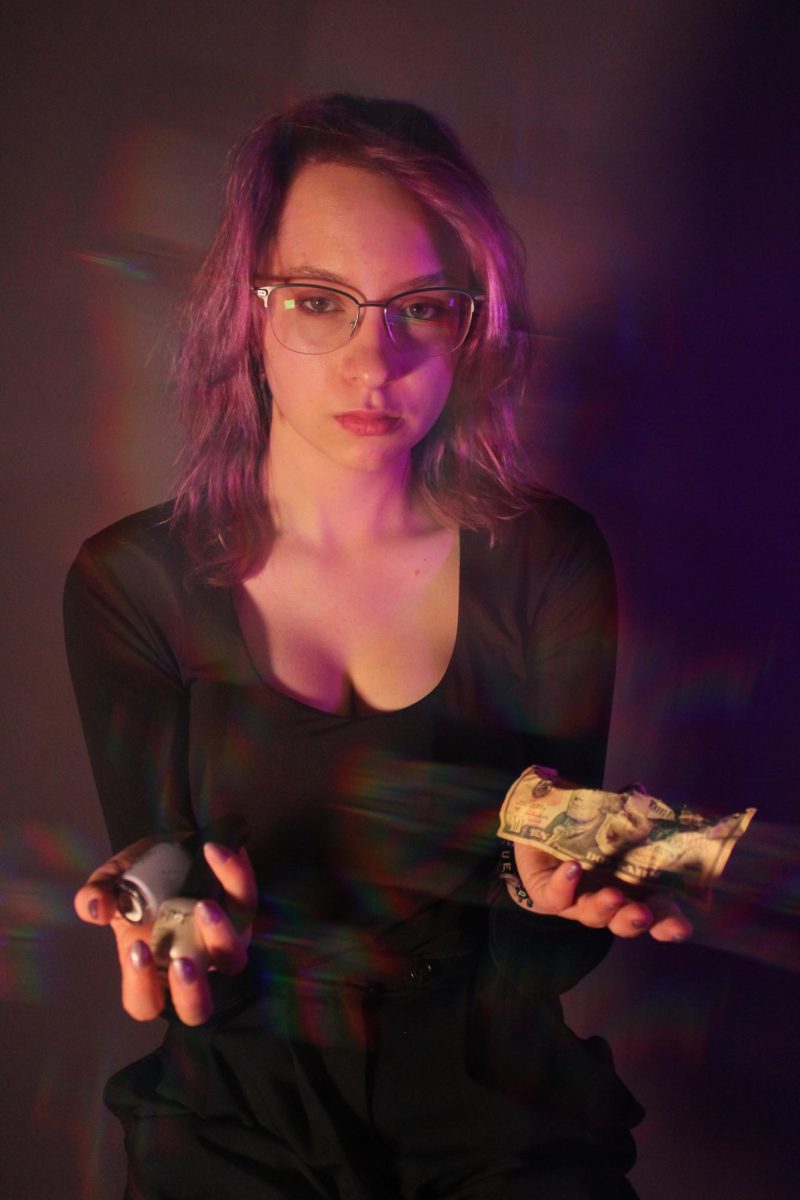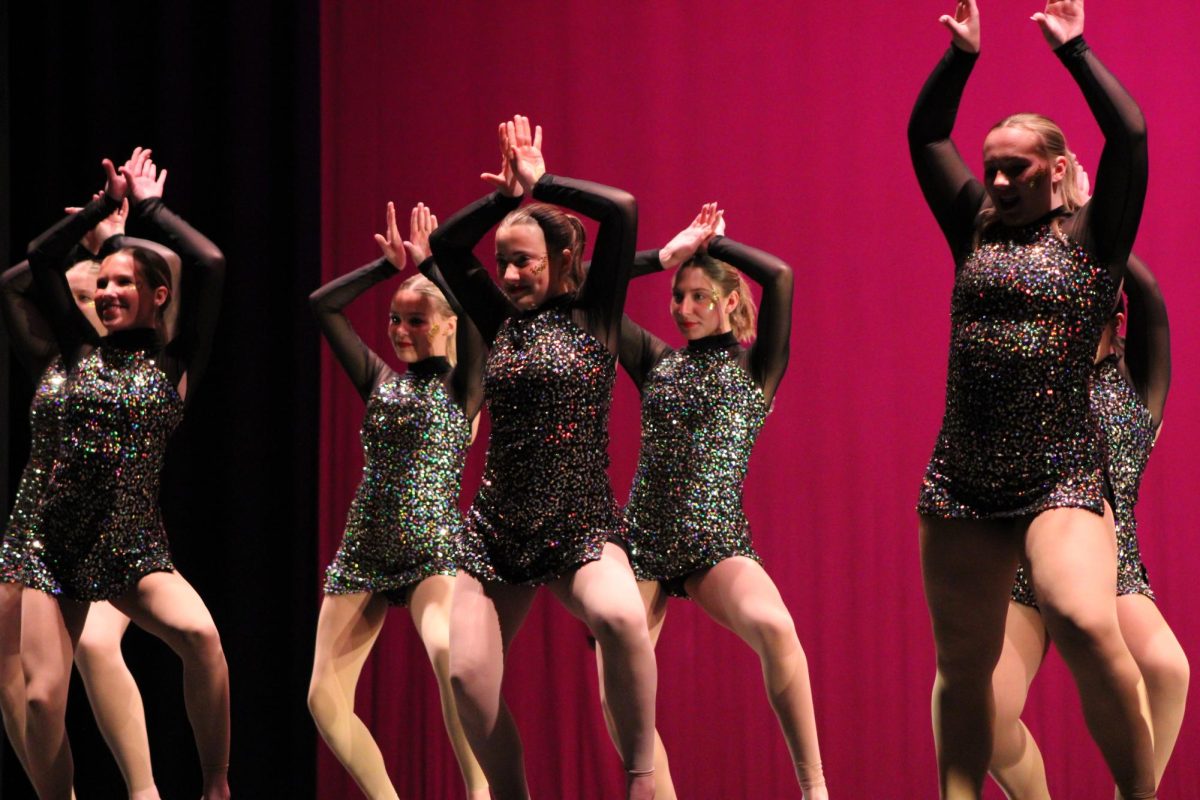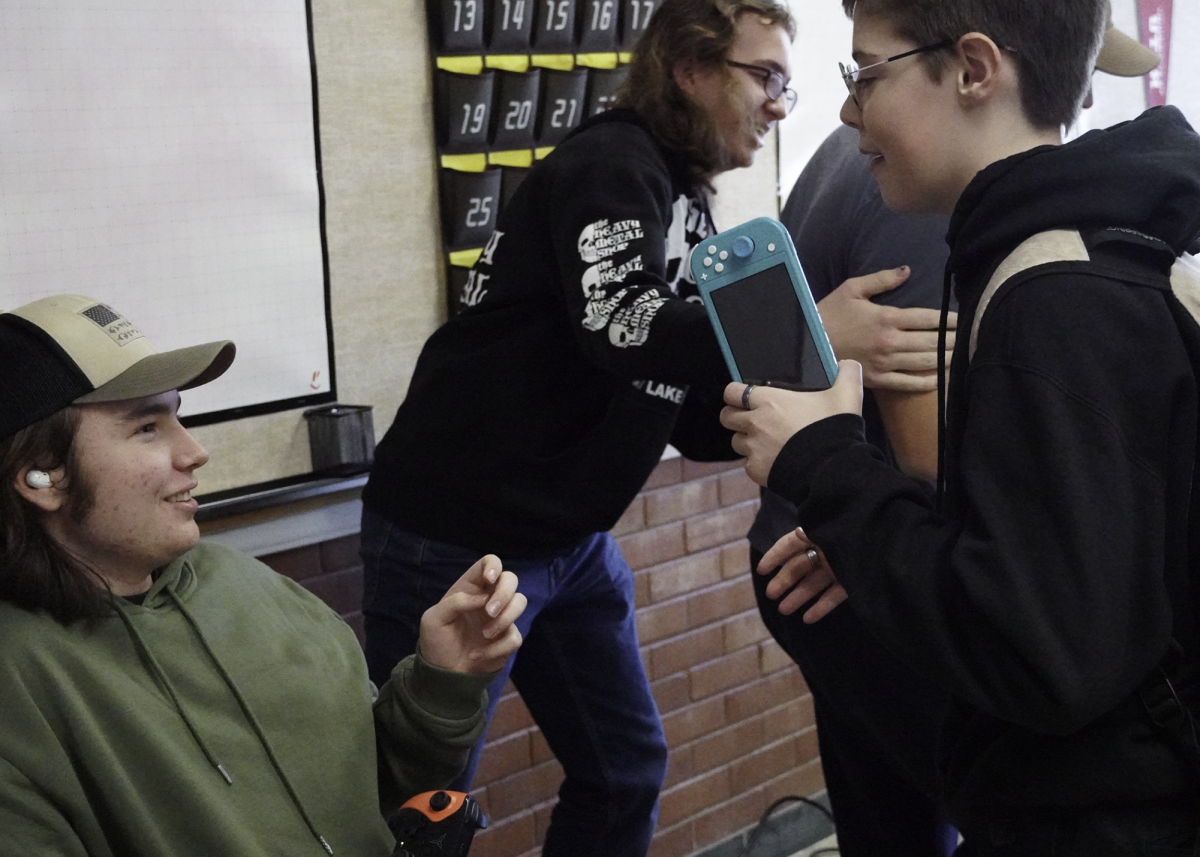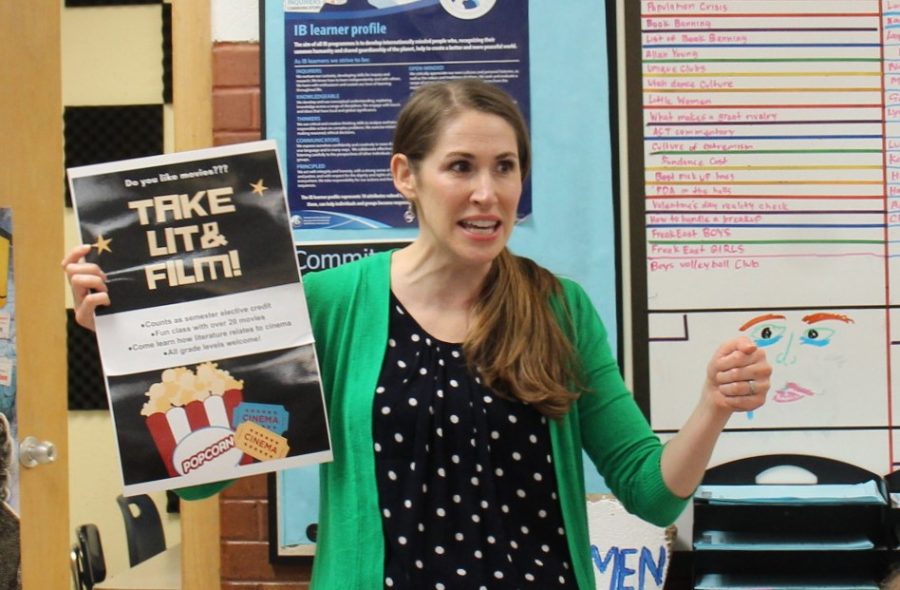Highland Introduces New Film And Literature Class
Katie Bullock explains Literature and Film to a 9th grade English class.
January 24, 2023
Everyone’s favorite part of the school year is the last two weeks before summer break, because that’s when AP tests are over, and teachers and students are brain dead, so students get to watch lots of movies.
But what if every day was like that?
Minus the unmotivated and brain-dead people of course.
Just the movies.
Katie Bullock, who is in her first year at Highland, started teaching a “Literature and Film” class at Hillcrest 16 years ago, when the Hillcrest English department assigned her the class without any lesson plans. No one ever trained her in how to teach the class, but over the years, she has developed a polished and extensive curriculum that has the feel of both a film, and an English class.
And now she wants to bring that class to Highland.
“It’s just such a likable subject–everyone loves movies, right?” Bullock said. “So everyone comes in with this positive attitude, it’s just a fun class, and it’s such a cool way to teach stories that’s not like, ‘Open your books. We’re going to read another one.’ It’s how a story is made.”
Literature and Film is a one-semester elective credit, open for 9th-12th graders, and it’s all about the art of watching and understanding movies. Light work is given, and sometimes films are paused to talk about the meaning behind what’s happening or to discuss the importance of a specific shot. It’s not unlike analyzing the importance behind certain word choice and symbolism in books, except for the fact that it’s on the screen. The class also covers many different kinds of movies, from classic black and whites like Casablanca, to ones that have come out in the past five years, like Jojo Rabbit. If Bullock goes out to a theater and sees a movie she thinks will fit the class well, they watch it.
Bullock sees and understands that a lot of movies are controversial, and that causes people to hesitate to show or teach them. But she sees how that controversy is a piece of history; she belives that just because it’s uncomfortable doesn’t mean it isn’t vital.
“We’re not going to censor movies, we’re going to talk about them,” Bullock said.
Bullock expresses how movies are an important part of culture. They are the new form of story-telling, and because of that, they are just as influential as books. It’s important to watch movies for more than just personal pleasure, Bullock said, because they teach people about the past, the present, and the future, and they have the ability to change the world.
“I just want to give kids a lot of exposure that they wouldn’t choose themselves. [These movies] are a part of our history and our stories [that may be] a little out of our comfort zone,” Bullock said.


